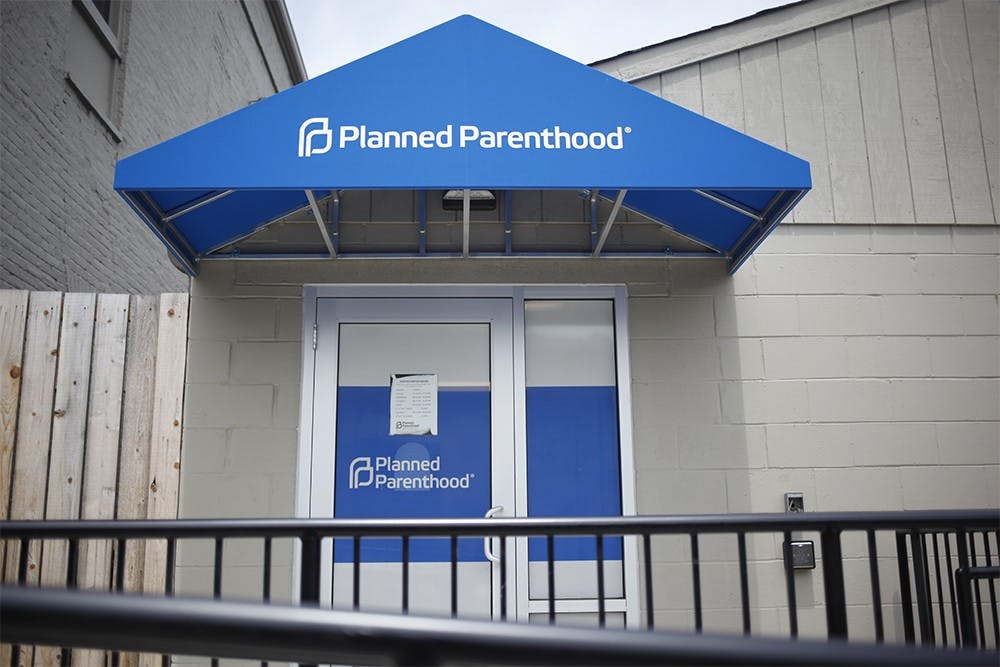Anti-abortion nonprofit Hoosiers For Life is working with State Rep. Curtis Nisly, R-District 22, to draft a bill banning abortion outright in Indiana.
“My goal is to cut out all of those regulations and just ban abortions,” Nisly said.
The proposed Protection at Conception bill is for the 2017 session beginning in January.
Hoosiers For Life argues that because the Indiana Code already states that human life begins at conception, there should not be exceptions that allow women to terminate their pregnancy, the nonprofit’s founder and executive director Amy Schlichter said.
“If it begins at conception then why are we not protecting it then,” Schlichter said.
The argument for pro-choice versus pro-life is no longer ideological or religious but rather scientific, Nisly said. Science has answered the question of when life begins, and the law should reflect this, he said.
In the previous legislative session, Nisly authored House Bill 1122 or the heartbeat bill, which mandated that abortion be classified as a level five felony offense if the fetus had a detectable heartbeat.
Level five felonies, such as involuntary manslaughter, usually mandate one to six years of imprisonment.
Nisly said while the heartbeat is an easy metric, it is not the most accurate.
The proposed Protection at Conception bill is a distinct and separate bill from those proposed to the previous legislation, Nisly said.
“The breakthrough with this bill is that we are not defining punishments,” Nisly said.
The Protection at Conception bill would leave criminal charges as severe as manslaughter or murder up to the discretion of a prosecutor.
“The prosecutor would treat it like a crime scene. They would collect evidence,” Nisly said.
Although the bill would not clearly define who would be prosecuted, the mother or the abortion provider, Nisly said he hoped prosecutors would assess on a case-by-case basis to determine who was at fault.
Proposed bills like Protection at Conception would increase risks for both patients and providers but not necessarily eliminate the need for abortion services, said Velvet Miller, manager of the Ryan Program at the IU School of Medicine.
The Ryan Program is a national initiative that incorporates family planning and contraceptives into four-year obstetrics and gynaecology residency programs.
Despite president-elect Donald Trump’s comments about reversing Roe v. Wade, Miller said her residents have continued their family planning rotations as usual.
However, they do take the threat seriously, and the program has increased its education on treating patients with complications and infections that are common after self-induced or illegal abortions, Miller said.
Residents are learning to identify and treat symptoms of sepsis, an infection that was common before Roe v. Wade.
Prior to the 1973 Supreme Court decision, hospitals had wings dedicated to treating women with sepsis, which can lead to tissue damage, organ failure and death.
In 1972, 130,000 women obtained illegal or self-induced procedures, according to the Guttmacher Institute. Of those, 39 women died because of complications from unsafe abortions.
The rise of sepsis and other complications is what Miller, who was a nurse before Roe v. Wade, is most afraid of, she said.
Until these actions are signed into law, it’s business as usual, Miller said.
“The urge is to get out on the street and start jumping up and down, but it’s not effective yet,” Miller said. “So we do some ground work, and you wait and see.”
In response to the Hoosier For Life bill, Planned Parenthood of Indiana and Kentucky released a statement saying they will continue to fight for abortion access by mobilizing a diverse coalition of supporters and lawmakers.
“Family planning is not a social issue, it is an economic issue that has a financial impact on the state of Indiana and the nation,” Betty Cockrum, PPINK President and CEO, said in a statement. “Lawmakers who continue to bury their heads in the sand on these reproductive issues are hurting those that they pledged to serve.”




